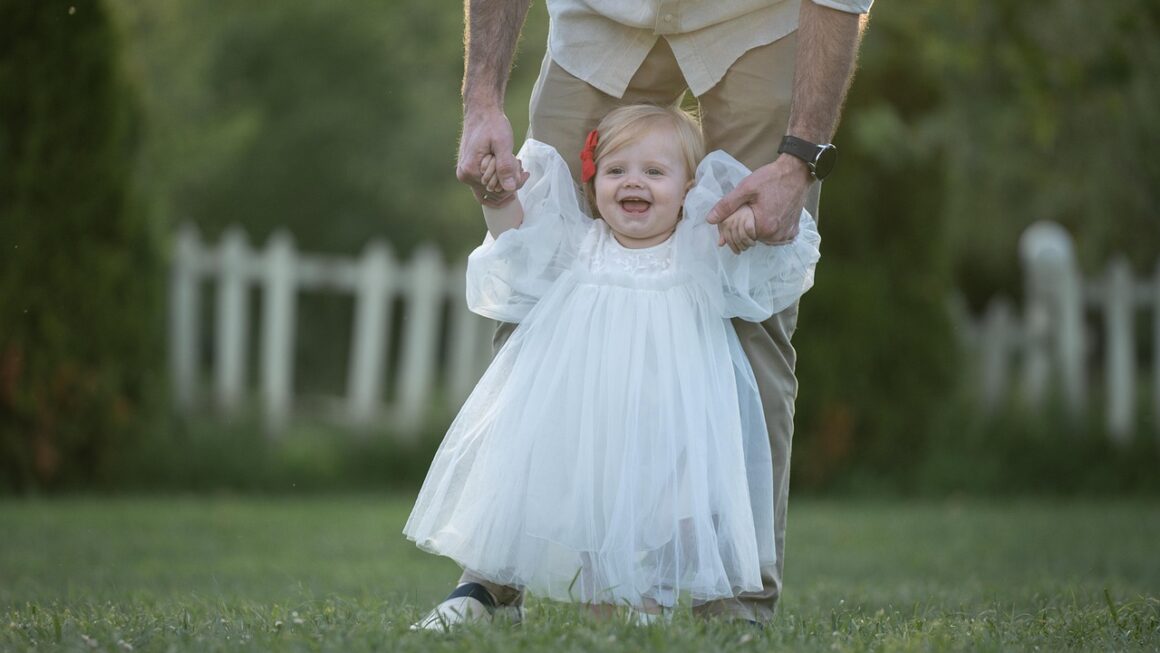Navigating the ever-evolving landscape of parenting can feel like an adventure, filled with both incredible joy and daunting challenges. From the moment we hold our newborns to watching them embark on their own journeys as young adults, the responsibilities and questions never cease. This blog post aims to provide a comprehensive guide, offering practical tips and insights on various crucial parenting topics to help you raise happy, healthy, and well-adjusted children.
Understanding Child Development Stages
Infant Development (0-12 Months)
This stage is characterized by rapid physical and cognitive growth. Infants learn through sensory exploration and interaction with their environment. Meeting their basic needs consistently fosters a sense of security and trust.
- Key Milestones: Rolling over, sitting up, crawling, babbling, and first steps.
- Parenting Tips:
Provide a safe and stimulating environment.
Engage in regular tummy time to strengthen muscles.
Respond promptly to their cries to build trust.
Read aloud and sing songs to stimulate language development. For example, reading simple board books with bright colors and engaging textures can be incredibly beneficial.
Baby-proof the house to prevent accidents as mobility increases.
Toddler Development (1-3 Years)
Toddlerhood is marked by increased independence, exploration, and language development. This is also a time when children test boundaries and develop their sense of self. Potty training and managing tantrums are common challenges.
- Key Milestones: Walking, talking, potty training, and developing social skills.
- Parenting Tips:
Encourage exploration while setting clear boundaries. A “yes space” where everything is safe to touch and explore can be a great solution.
Use positive reinforcement and consistent discipline. For example, reward good behavior with praise and small privileges.
Offer choices to foster a sense of autonomy. “Do you want to wear the blue shirt or the red shirt?”
Teach them to label their feelings and develop coping mechanisms for frustration. Help them identify emotions and suggest calming strategies like deep breathing or counting.
Preschool Development (3-5 Years)
Preschoolers develop more complex social and cognitive skills. They are eager to learn, ask questions, and engage in imaginative play. Preparing them for school becomes a focus.
- Key Milestones: Expanding vocabulary, developing social skills, and understanding basic concepts.
- Parenting Tips:
Encourage creativity and imagination through arts and crafts, storytelling, and pretend play. Provide access to art supplies and time for unstructured play.
Read to them daily to foster a love of reading. Visit the library regularly and let them choose books that interest them.
Teach them basic social skills like sharing, taking turns, and resolving conflicts. Role-playing scenarios can be very effective.
Introduce them to basic academic concepts like letters, numbers, and shapes. Use games and activities to make learning fun.
School-Age Development (6-12 Years)
During this stage, children develop more independence, logical reasoning skills, and a strong sense of self. School becomes a central part of their lives. Peer relationships and academic performance become increasingly important.
- Key Milestones: Mastering academic skills, developing social relationships, and forming their own identity.
- Parenting Tips:
Support their academic endeavors and encourage a love of learning. Help them with homework, but also allow them to take ownership of their studies.
Foster their independence and responsibility by assigning age-appropriate chores.
Encourage healthy social interactions and monitor their online activity. Talk to them about online safety and responsible social media use.
* Promote extracurricular activities to develop their talents and interests.
Effective Communication Strategies
Active Listening
Active listening involves paying full attention to what your child is saying, both verbally and nonverbally. It shows them that you value their thoughts and feelings.
- Benefits: Builds trust, improves understanding, and fosters a stronger parent-child relationship.
- Example: When your child is talking about a problem at school, put down your phone, make eye contact, and listen attentively. Reflect back what they said to confirm your understanding. “So, you’re feeling frustrated because you didn’t get picked for the team?”
Empathetic Communication
Empathy involves understanding and sharing your child’s feelings. It helps them feel understood and validated.
- Benefits: Helps children feel understood, fosters emotional regulation, and strengthens the parent-child bond.
- Example: If your child is upset about losing a game, say something like, “I understand you’re disappointed. It’s tough to lose when you’ve worked hard.” Avoid dismissing their feelings by saying things like, “It’s just a game.”
Using “I” Statements
Using “I” statements allows you to express your feelings without blaming or criticizing your child.
- Benefits: Promotes open communication, reduces defensiveness, and fosters a collaborative problem-solving approach.
- Example: Instead of saying, “You always leave your toys lying around!” try saying, “I feel frustrated when I see toys all over the floor because it makes the house feel cluttered. Can we work together to find a solution?”
Positive Discipline Techniques
Setting Clear Expectations
Children thrive on structure and predictability. Setting clear expectations helps them understand what is expected of them and reduces the likelihood of misbehavior.
- Example: Establish clear rules for screen time, homework, and chores. Make sure the rules are age-appropriate and clearly communicated.
- Benefits: Reduced misbehavior, increased cooperation, and a sense of security.
Positive Reinforcement
Rewarding good behavior is more effective than punishing bad behavior. Positive reinforcement encourages children to repeat desired actions.
- Example: Praise your child when they do something well, offer small rewards for completing chores, or create a reward chart for achieving goals.
- Benefits: Increased motivation, improved self-esteem, and a positive learning environment. For instance, research consistently shows that children respond more favorably to praise and encouragement than to criticism and punishment.
Time-Outs
Time-outs provide a structured way for children to calm down and reflect on their behavior.
- Example: When your child is misbehaving, calmly explain that they need to take a time-out. Have them sit in a designated quiet area for a set period (usually one minute per year of age).
- Benefits: Helps children calm down, reduces impulsive behavior, and provides an opportunity for reflection.
Natural and Logical Consequences
Natural consequences are the results of a child’s actions. Logical consequences are related to the misbehavior and help the child learn from their mistakes.
- Example – Natural Consequence: If your child refuses to wear a jacket on a cold day, the natural consequence is that they will be cold.
- Example – Logical Consequence: If your child refuses to clean up their toys, the logical consequence is that they will not be allowed to play with them for a certain period.
Prioritizing Self-Care for Parents
Parenting is demanding and can be emotionally draining. Taking care of your own physical and mental health is essential for being an effective parent.
Physical Well-being
- Healthy Diet: Nourish your body with a balanced diet rich in fruits, vegetables, and whole grains. Avoid processed foods and excessive sugar.
- Regular Exercise: Even a short walk or workout can boost your energy levels and improve your mood. Aim for at least 30 minutes of moderate-intensity exercise most days of the week.
- Adequate Sleep: Prioritize sleep by establishing a consistent sleep schedule and creating a relaxing bedtime routine. Aim for 7-8 hours of sleep per night.
Mental and Emotional Well-being
- Mindfulness and Meditation: Practice mindfulness and meditation to reduce stress and improve focus. Even a few minutes of daily meditation can make a difference.
- Hobbies and Interests: Engage in activities that you enjoy and that help you relax and recharge.
- Social Support: Connect with friends, family, or support groups to share your experiences and receive encouragement. Don’t be afraid to ask for help when you need it. A 2021 study by the Pew Research Center found that parents who have strong social support networks report lower levels of stress and burnout.
- Seeking Professional Help: Don’t hesitate to seek professional help from a therapist or counselor if you are struggling with stress, anxiety, or depression.
Conclusion
Parenting is a journey, not a destination. There will be ups and downs, challenges and triumphs. By understanding child development, practicing effective communication, utilizing positive discipline techniques, and prioritizing self-care, you can create a nurturing and supportive environment for your children to thrive. Remember to be patient, flexible, and compassionate with both yourself and your children. Embrace the learning process and enjoy the precious moments along the way.




